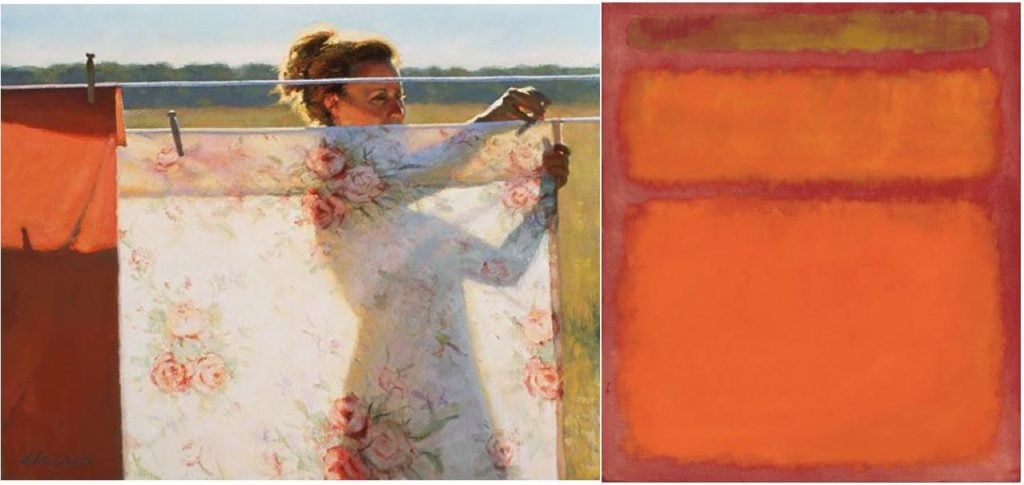Art World
How Much Does Artistic Taste Line Up With Politics? A Lot, at Least When It Comes to Brexit Voters
The findings illustrate the divergent psychological outlooks of conservatives and liberals.

The findings illustrate the divergent psychological outlooks of conservatives and liberals.

Henri Neuendorf

In a new study, sociologists at the University of Oxford found that Brexit supporters are more likely to prefer realistic artworks, while “remainers”—those who favor the UK staying in the European Union—tend to favor abstraction.
The team of three researchers surveyed 3,607 members of the British public, asking them to pick their favorite painting from four pairs of artworks. Each pairing included one realistic work by the likes of Thomas Kinkade and Michael Klein and one abstract work by artists such as Francis Bacon or Mark Rothko.
In their paper, titled Preference for realistic art predicts support for Brexit, Noah Carl, Lindsay Richards, and Anthony Heath conclude that respondents who picked all four realistic paintings “were a full 20 percentage points more likely to support leave” than those who preferred all four, or three-out-of-four abstract works. The result remained the same even when the team controlled the data for demographic variables, such as gender, age, education, ethnicity, or country of birth.
Speaking to the Guardian, lead researcher Noah Carl said that he thinks the conclusion “largely reflects differences between social conservatives and social liberals. Leave voters were not much more economically right-wing than remain voters, but they were substantially more socially conservative,” he said.
The paper suggests that social conservatives, who are more likely to have voted for Brexit, “display lower tolerance for ambiguity and greater need for closure than their liberal counterparts” and thus “experience more elevated psychological discomfort when looking at objects depicted in a non-representational way.”
On the other hand, remain supporters are more likely to pick abstract works because they are more likely to associate abstraction with “positive connotations like cosmopolitanism, intellectual sophistication, and open-mindedness.”
An alternative theory suggests the psychological profiles of the two groups could explain the link between pro-Brexit voters and realistic, figurative art. Using the five-factor model, the team suggested that “leave supporters exhibit relatively high conscientiousness, which is the typical psychometric profile for a social conservative.” As a result conservatives “may evaluate abstract paintings more negatively because they impute less skill or effort to their creators.”
According to Carl, the result goes beyond taste in art and illustrates how people’s fundamental psychological composition influences their political views. “One lesson would be to accept that leave and remain voters’ preferences at least partly reflect their underlying psychological proclivities, and that these proclivities lead the two groups to hold different sets of values on average,” he explained. “In other words, although it might seem obvious on reflection, it bears repeating that some political disagreements are not fundamentally resolvable because they arise (at least in part) from the fact that different people simply want different things.”